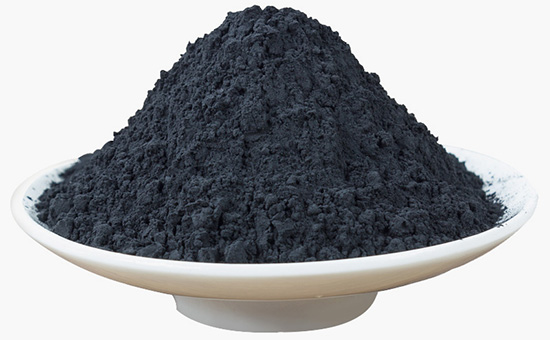
At present, reclaimed rubber is hot in the rubber products industry. Many rubber products have appeared in the form of reclaimed rubber. Conductive rubber products manufacturers are not far behind, and began to use reclaimed rubber in conductive products. Research shows that it affects the electrical conductivity of recycled rubber products. There are many factors, and carbon black is one of the important factors; how does carbon black affect the conductivity of recycled rubber products when using recycled rubber to produce conductive rubber products? What kind of carbon black should be selected for recycled rubber products to improve the conductivity of the rubber compound?
Carbon black is a black powdery substance with light texture and high fineness obtained by incomplete combustion or thermal decomposition of carbonaceous materials under the condition of insufficient air. The most used reinforcing agent in rubber products industry; it is understood that the surface of carbon black The presence of volatile substances and oxidizing substances may affect the electrical conductivity of the rubber compound. High levels of volatile substances may hinder the transfer of electrons, resulting in an increase in the oxidizing substances on the surface of the carbon black, and the conductive properties of the rubber compound may be deteriorated. Therefore, when carbon black is selected as a reinforcing agent in the production of reclaimed rubber products, attention should be paid to its influence on the electrical conductivity of the rubber compound.
Experiments show that the filling amount of carbon black in each reclaimed rubber has a minimum value. After the minimum filling amount, the resistivity of the reclaimed rubber will decrease rapidly, and the electrical conductivity of the reclaimed rubber product will be significantly improved; The more black, the easier it is to disperse in the reclaimed rubber. The smaller the distance between the particles, the more favorable the transfer of electrons between the rubber compounds. The better the conductivity of the reclaimed rubber is. The higher the structure, the more irregular the carbon black structure particles can be electronic. The transfer provides more paths from which to improve the conductivity of the reclaimed rubber.
Under normal circumstances, when using conductive rubber to produce conductive rubber products, carbon black with small particle size, high degree of structure, low volatile content, high porosity and wide particle size distribution will be added to the rubber. The conductive property of the product is more favorable. Acetylene carbon black is the most commonly used conductive carbon black, and a good conductive network can be formed under the condition of low filling amount, and 50 parts of acetylene black can make the rubber compound reach the semiconductor state.
Studying the influence of carbon black on the electrical conductivity of recycled rubber products is of great significance to improve the quality of finished products. When using recycled rubber to produce conductive rubber products, selecting the appropriate kind of carbon black can further improve the electrical conductivity of recycled rubber, but for insulating reclaimed rubber products, Avoid using this type of carbon black.
Exclusive original article [commercial authorization] reprint, excerpt and excerpt in any form are prohibited without written authorization. Focus on Hongyun rubber: learn the process formula and raw material technology of producing rubber products from recycled rubber to help you reduce costs and increase profits